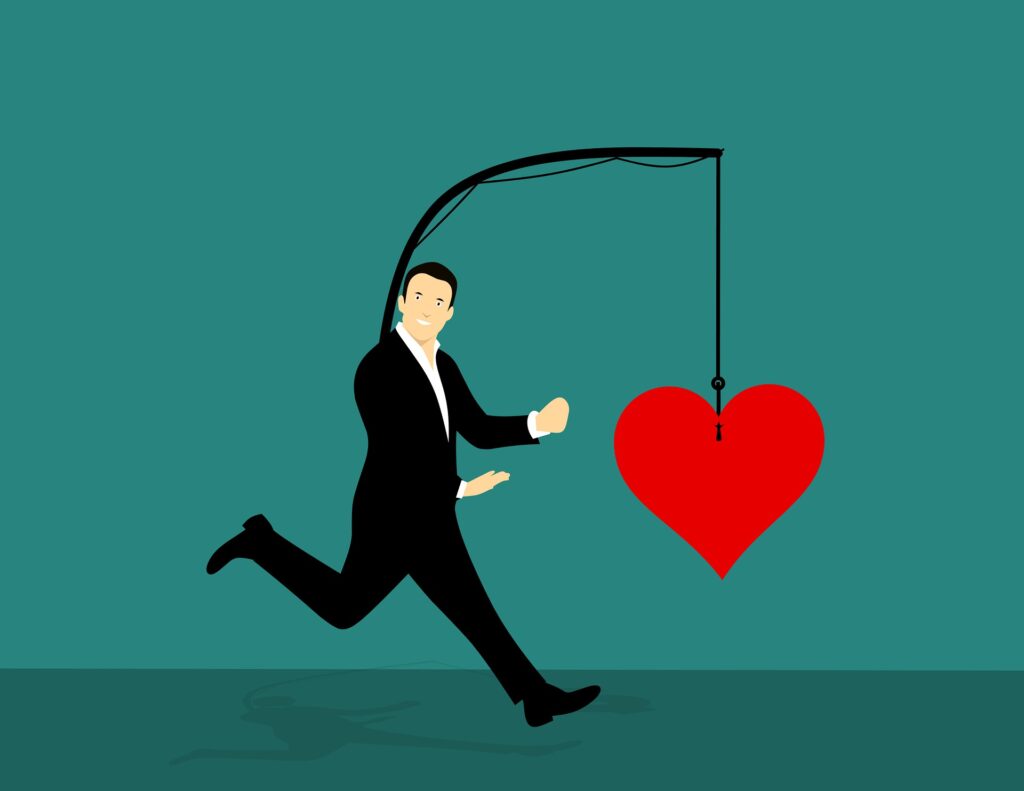I have always heard people say these…
“That is how I do things, I don’t know why and I can’t change”
“Oh, I don’t eat in any other restaurant”
“Whenever I visit my mother-in-law, even when I don’t have enough money, I must buy this and that. It’s just the way I do these things”
Hmmm
We find ourselves doing the same thing over and over again, even when these things could be negatively affecting us
The interesting part is that we may have no clue that this is happening.
One concept that can explain our desire to keep doing the same thing over and over again, even when that behaviour may be affecting us, is called self herding.

What is Self Herding?
Self-herding is a form of a heuristic technique of thinking.
As Dan Ariely defines it, self herding is our tendency to follow the same decisions we have made in the past (i.e. our current or future decision are influenced by our previous decisions).
The concept has also been applied to animals, encouraging animals to make decisions through positive experiences that establish long-lasting behaviours.
But, let’s stick to the human part
A lot of us have heard about the word herding or herd behaviour.
However, with self-herding, we subconsciously refer to our actions in the past for guidance for current and future behaviours.
To understand self-herding, let me paint a situation that happened to me about 1 year ago
It was a long day at my new office
Usually, I won’t spend more than N1,500 ($4) for a single lunch. In my head, what could I possibly eat?
Then, I found myself in that new office with no idea where they sell meals and I was dead hungry.
I had a little more money because I had just received my monthly salary, so I opted for one famous online food ordering platform.
Well, I spent N3,500 ($9) on a single meal.
It wasn’t a big deal because, as I said, I had just received my salary so I was a little more buoyant.
In my mind, I was going to get new eating spot after that day or better still get my food from home.
But, lo and behold, after almost 3 months, I was still ordering food even when it was the last week of the month and I had very little money.
What do you think was the possible reason?
Discover amazing ways to live your best life.
Delivered to your email every Tuesday and Saturday
Implications Of Self Herding
The first time I made that decision, It was the right decision at that time. I was hungry, feeling like a rich boss, and desperate. Since our brain is naturally lazy to rethink the situation, it continues to think that remains the right decision.
It’s also easy – I used my memory rather than my thinking muscles.
We remember our actions but we don’t remember why.
We don’t remember the emotions and circumstances that made us perform that decision.
So we repeat…
We repeat an initial ritual over and over until it becomes a habit. That initial emotion ends up influencing a long string of decisions.
These are some examples of the long-lasting effects of initial decisions, and we can see how irrational behaviours impact ourselves on a daily basis.
Understanding our cognitive limitations just as we understand our physical limitations could help us make better decisions
Specific Or General Manifestation
Self herding can manifest in either general or specific manners.
Specific herding is when we subconsciously use a past decision as referenced when repeating a near-identical scenario, such as buying a gift for your mother-in-law or father-in-law.
General herding, on the other hand, is when past behaviour is used as a reference point for a wider range of behaviours. For example, buying gifts for your mother-in-law could make you feel like a nice person that gives them to a family member, so you find it difficult to say no when family members ask you for anything.

How To Manage Self Herding
Don’t get me wrong, self herding has its own benefits. For example, it could help us make faster decisions, makes us feel safe and less stressed. Also, self-herding decisions are not always wrong or unhealthy.
Nonetheless, this can lead to some cognitive bias that tends to affect us in the long run.
Here are a few ways to help us manage.
-
Increase Awareness
Awareness is the first step in managing self-herding behaviours. The more aware you are of your emotions and behaviours, the more likely for you to realize when it is a self-herding behaviour. It may be difficult to identify when a behaviour started when it has turned into a habit. Nonetheless, if we notice that we compulsively perform some behaviours that are not healthy to our mental, psychological, physical, and social well-being it may be a pointer that a behaviour may need to change.
Ways to become self-aware includes mindful decisions, objective evaluation of self and meditation.
If we are more aware, we can make decisions that are normally based on current emotions.
-
Practice Conscious Control
Most of our actions are influenced by the nonconscious states and processes, that moves too fast.
After awareness, comes control. Conscious control is the experience of seeming to be in control of one’s actions.
When we are self-herding, we are in some sort of autopilot or rather saying doing something absent-minded.
We can regain control by asking ourselves “what are the reasons for this behaviour” or “why am I doing this”. We can change our action by deciding “how we can do things differently” or “what are the alternate options that can benefit me”
I’ll like to add that conscious control is not automatic that happens because we will it. It takes time and practice
-
Replace The Self-Herding Behaviour
This technique involves creating a new behaviour that actually works for you in the long run.
You can create a new set of behaviours that form habits that you can rely on in the future.
For example, we can start out exercising in the morning to set the tune of our entire day. Remember general self-herding manifestation? Exercising in the morning can help replace the self-herding behaviour of ice creams every morning because after exercising our subconscious considers a repertoire of healthy behaviours.
I’ll like to end this by letting us know that if conditions of our initial decisions change (thoughts, emotions, or circumstance), our decisions may no longer remain valid.
Believing that we need to continue on the same behaviour, even when the circumstances do not permit, may lead to some form of depression, or anxiety.
Every day, we need to practice un-herding ourselves from negative decisions that can make us make mistakes or miss important opportunities.
Remember, until I come your way next time, better day tomorrow.
Discover amazing ways to live your best life.
Delivered to your email every Tuesday and Saturday